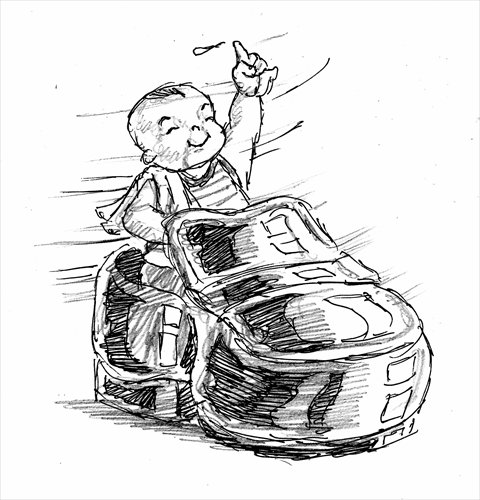Market dominance by retail investors must change
Regulators should encourage bigger role for institutional investors

Illustration: Peter C. Espina/GT
"When even the shoe shine boys give stock tips, it's time to sell." This famous Wall Street saying from the Roaring '20s highlights how professional investors, more often than not, have a better understanding of market trends than individual investors.
The A-share market has fallen by more than 30 percent in less than a month, suffering its biggest single-day plummet in eight years on July 27, even in the wake of unprecedented government support measures.
This has once again exposed a long-standing structural problem with the Chinese market: the excessive dominance of retail investors.
The data says it all. Individual retail investors hold about 85 percent of China's market capitalization, and account for nearly 80 percent of market turnover. Unlike many of the world's stock markets, especially mature ones in countries and regions such as Hong Kong and the US, institutional players only have a small slice of the Chinese mainland market.
There are 90 million individual retail investors in China, with their number having increased rapidly since the beginning of this year, when the market was on a bull run. Credit Suisse estimated that an incredible 80 percent of urban Chinese households have invested in the market, putting about 30 percent of their collective cash into stocks.
Drawing from the lessons of the world's major markets, a retail investor-dominated market is prone to drastic volatility and periods of panic selling, similar to what the US market witnessed prior to the Great Depression.
This is due to various factors, which include information asymmetry, short sightedness, high risk appetite, herd mentality and a lack of institutionalized hedging or stop-loss mechanisms among most retail investors.
The inexperience, and even ignorance, of retail investors played a part in the recent stock market plunge, with the prior market boom having been fueled by a sudden rise in the number of zealous traders with little knowledge of the equity market and inadequate assets to back their investment.
More than 30 million new trading accounts were created in the first five months of 2015, according to figures from the China Securities Depository and Clearing Corp.
However, according to a survey conducted by Southwestern University of Finance and Economics at the end of last year, more than two-thirds of new equity investors were only educated as far as middle school, or to an average age of 15. More than 30 percent left school at age 12 or below. Also, the household wealth of the new investors is about half the level of existing investors.
In a market dominated by retail investors, it is understandable that the government had to step in to try and restore stability, given that so many investors are vulnerable to deep losses.
Although mature markets dominated by institutional investors are not immune to fluctuations, the volatility is usually less drastic and tends to reflect market fundamentals.
In this sense, the retail investor-dominated structure of the Chinese market has to be rectified to ensure the healthy long-term development of China's financial industry.
However, this will not be easy to achieve. It could take decades for retail investors to kick the habit of trading by themselves, if international experience is anything to go by.
In this process, it is important for retail investors to understand the benefits of entrusting professionals such as fund managers to deal with stock investment. If the history of other major global markets can offer some insight, the most effective way to instill this understanding into the minds of retail investors is the market itself. Repeated failures in investment will ultimately prompt them to join up with institutional investors that have a better track record. In this sense, the government should allow some degree of market fluctuations, as they can educate individual investors. But of course the authorities should step in if there is any risk of a serious financial meltdown.
In the longer term, regulators could increase the participation of institutional investors with measures such as expanding the qualified foreign institutional investor program and gradually increasing pension fund investment in the stock market.
More importantly, however, regulations for institutional investors should be strengthened to really win the trust of retail investors. One common reason behind individual investors' desire to go it alone is that institutional investors do not have the best image among the public.
Cases of collusion with listed companies, insider trading and fraud are often cited by retail investors as reasons for their mistrust of fund managers and stockbrokers.
To rectify the situation, regulations and punishment for irregularities among institutional investors should be stepped up.
This could improve retail investors' confidence, not only in institutional investors but also in the Chinese market as a whole.
The author is an economic commentator. bizopinion@globaltimes.com.cn